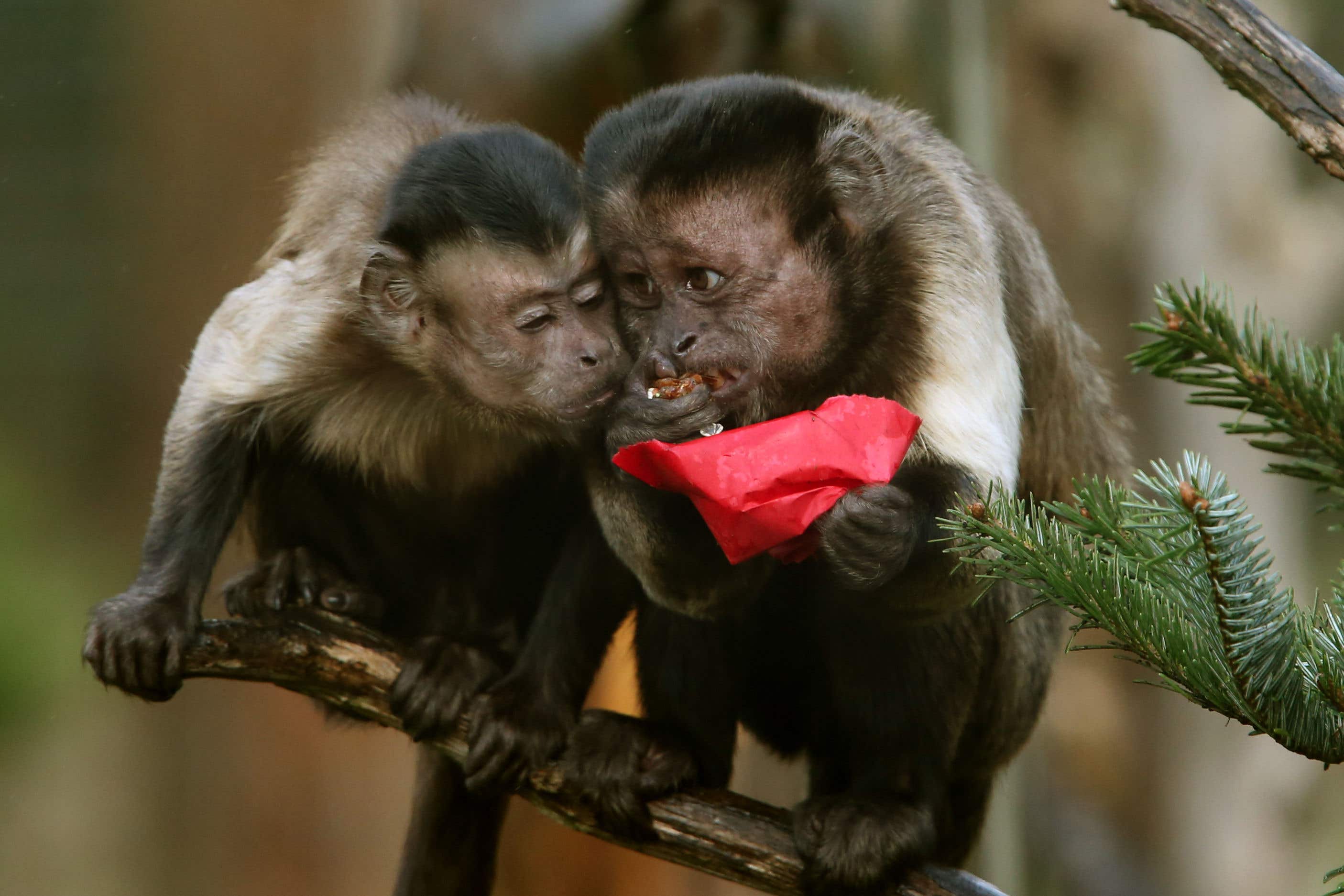Keeping primates as pets to be banned under Government proposals
The RSPCA has backed the Government’s plans, saying primates’ needs ‘cannot be met in a domestic environment’.

Your support helps us to tell the story
From reproductive rights to climate change to Big Tech, The Independent is on the ground when the story is developing. Whether it's investigating the financials of Elon Musk's pro-Trump PAC or producing our latest documentary, 'The A Word', which shines a light on the American women fighting for reproductive rights, we know how important it is to parse out the facts from the messaging.
At such a critical moment in US history, we need reporters on the ground. Your donation allows us to keep sending journalists to speak to both sides of the story.
The Independent is trusted by Americans across the entire political spectrum. And unlike many other quality news outlets, we choose not to lock Americans out of our reporting and analysis with paywalls. We believe quality journalism should be available to everyone, paid for by those who can afford it.
Your support makes all the difference.Keeping primates as pets will soon be banned with private owners required to pass special licensing conditions, the Government has said.
The RSPCA estimates there are between 4,000 and 5,000 marmosets, capuchins, squirrel monkeys and other primates in UK homes.
They say it is inappropriate for primates to be kept as pets because they experience complex emotions, form relationships and suffer when alone, which is most often the case when in a domestic setting.
Under the Government’s plans, primates must be kept under zoo-level standards, with private keepers requiring a licence.
It has opened a four-week consultation to hear views on how it should shape the exact conditions of such a licence.
Our frontline officers are still seeing shocking situations where monkeys are cooped up in bird cages, fed fast food, sugary drinks or even Class A drugs
Animal welfare minister Lord Benyon said: “This Government remains committed to maintaining and improving its world-leading animal welfare standards – including for primates who have complex welfare and social needs.
“Today’s announcement is the start of the process of ensuring these intelligent and curious wild animals are better protected and respected.
“This will fulfil the Government’s manifesto commitment to ban the keeping of primates as pets.”
The RSPCA has said it supports the proposals because many primates are mentally stressed by being kept as pets.
They are highly social animals and when kept alone become depressed, self-mutilate, pluck out their own hair and rock and self-hug which are all symptoms of suffering, the RSPCA has said.
Its investigations revealed that primates were kept alone in 60% of cases.
Dr Ros Clubb, head of wildlife at the RSPCA, said: “We warmly welcome the UK Government’s proposals to move forward on the issue of restricting the keeping of primates as pets in England – particularly after the recent disappointment of the Kept Animals Bill being dropped.
“We will be responding to the Government’s proposals in detail in due course and hope that the regulations will deliver an end to the keeping and trade of primates as pets.
“The RSPCA has been calling for a complete ban on the keeping and trade of primates as pets for some time and we know there’s public support too – with 80% supporting prohibiting the keeping of primates as pets.”
Primates’ intelligent brains mean they need space and stimulation but the RSPCA said many are kept in small bird cages and fed fast food or even Class A drugs.
Dr Clubb added: “Primates’ needs simply cannot be met in a domestic environment. They are intelligent, sentient and highly social animals with complex needs.
“Just like humans, primates can become depressed without adequate stimulation.
“They need a spacious and enriched environment that challenges their intelligent brains and allows for them to behave like primates should.
“But sadly, our frontline officers are still seeing shocking situations where monkeys are cooped up in bird cages, fed fast food, sugary drinks or even Class A drugs, deprived of companions of their own kind, living in dirt and squalor and suffering from disease.”
The Government consultation is open until July 18 and once confirmed, the new measures will be implemented under the Animal Welfare Act 2006.